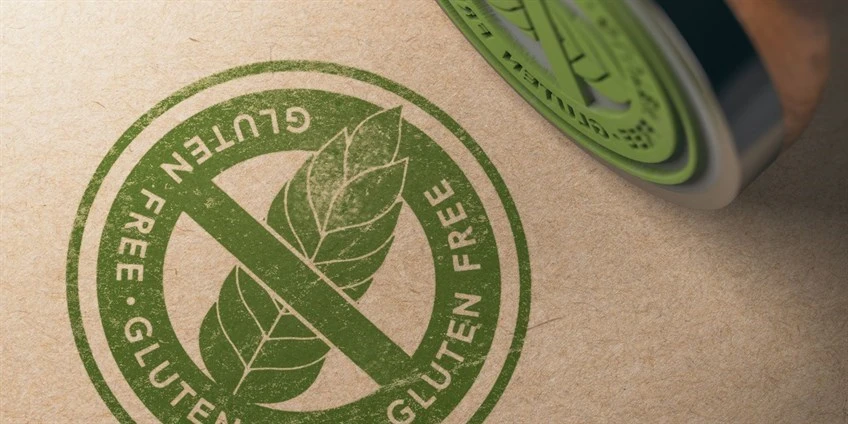Gluten is a protein found in wheat, rye and barley. In itself it is pretty harmless, and certainly not responsible for weight gain or weight loss, unless of course you have coeliac disease or non-coeliac gluten sensitivity.
“But I cut out bread & pasta, and lost loads of weight”
Most likely because of a reduction in calorie consumption, rather than a result of gluten avoidance.
The main condition associated with gluten consumption is coeliac disease. A rare yet genuine condition. Not an allergy, not a food intolerance, but a serious autoimmune disease. The only treatment, is to follow a strict gluten-free diet.
There is also a rising body of research which indicates there may be another condition associated with gluten consumption. This is known as non-coeliac gluten sensitivity, (NCGS).
Typically, people present with very similar symptoms as someone who has coeliac disease, yet after a gut biopsy, no intestinal damage is detected. NCGS is currently not a fully accepted condition, but research is growing. There’s no diagnostic test that can be carried out, other than the avoidance of gluten and the subsequent effect on symptoms. A GP or gastroenterologist will not be able to carry out a test for NCGS, it’s usually a case of ruling out other potential health problems or conditions first, before a diagnosis of NCGS is made.
Coeliac disease is serious!
As a mother of a child with coeliac disease, I have experienced, firsthand, the flippancy sometimes afforded to my son’s condition. Likening it to a faddy diet or a generic food intolerance.
My son’s gastroenterologist made the dangers of eating gluten categorically clear. So whilst those with coeliac disease are posed with the risk of uncomfortable and debilitating symptoms, more worryingly are the very real long term health implications caused by gluten consumption.
Checking labels has become a way of life for us, you wouldn’t believe the number of products, gluten lurks within. In fact, even the “gluten free” products themselves can contain up to 20 parts per million, of gluten. Which means for my son, we have to be careful of the amounts he consumes. A cumulative effect of “gluten free products” can cause serious side effects for him.
Generally, we have to stick to whole foods, to avoid the risks of any trace amounts of gluten, and for convenience, products such as Pulsin bars are perfect to ensure we can have handy snacks ready for family days out.
We also need to abide by strict food preparation standards in our home kitchen to avoid cross contamination. Including a separate toaster, separate butter, and ensuring a designated area of the kitchen is assigned purely for gluten free food prep.
It’s hard work!
Eating out hardly ever happens, it’s just not worth the risk.
Someone suffering with non-coeliac gluten sensitivity may well exhibit the same unpleasant side-effects from eating gluten, but they will not have the long term health problems, that someone with coeliac disease will suffer. This is where the risks of cross contamination and food preparation are not as important. The tolerance threshold with non-coeliac gluten sensitivity is usually much higher, and if, by chance they do accidentally miss a crumb of gluten containing bread on their butter knife, there’s no long term risk to their health.
If you believe you have a reaction to gluten, it is imperative that you seek diagnosis from a medical professional. Knowing whether your sensitivity is caused by coeliac disease or non-coeliac gluten sensitivity is absolutely vital. Long term it could have major health implications, so you will need to be under the care of a gastroenterologist if you do end up being diagnosed with coeliac disease.
Should we cut out gluten?
If you feel better eliminating gluten from your diet, then by all means. But ensure you have had any other potential health issues ruled out first before making your own diagnosis.
Self-diagnoses from a Google search can be dangerous, and may result in a misdiagnosis, or result in you unnecessarily cutting out a major food group.
If you do have symptoms, don’t be a Google doctor. Go and see a qualified medical professional. Get checked and diagnosed properly. If you have symptoms, it may well be coeliac disease, but even if it turns out to be non-coeliac gluten sensitivity, it’s important that you get checked out by a specialist, not only to ensure you receive the appropriate care, but also to rule out any other health condition.
Looking for some delicious gluten free treats? Everything Pulsin sells is gluten free so you can snack happy! Check out their snack bar range here.
References
- Diagnosis and classification of coeliac disease and gluten sensitivity Autoimmunity Reviews, Volume 13, Issue 4, Pages 472-476 Elio Tonutti, Nicola Bizzaro
- Small Amounts of Gluten in Subjects With Suspected Nonceliac Gluten Sensitivity: A Randomized, Double-Blind, Placebo-Controlled, Cross-Over Trial.
- Non-Celiac Gluten Sensitivity Has Narrowed the Spectrum of Irritable Bowel Syndrome: A Double-Blind Randomized Placebo-Controlled Trial.
- Causes of death in people with coeliac disease in England compared with the general population: a competing risk analysis.

Jennifer Bulcock
Jennifer Bulcock is a qualified nutrition consultant, author, and busy mum of three young kids. Jennifer works with clients around the globe to improve their lifestyle, nutrition, and long term health; focusing on relationships with food and unhealthy dietary habits. With advice founded from science-based nutritional recommendations, working with Jennifer will provide you with skills to create a habitually healthy family lifestyle, equipped with skills for the rest of your life.

